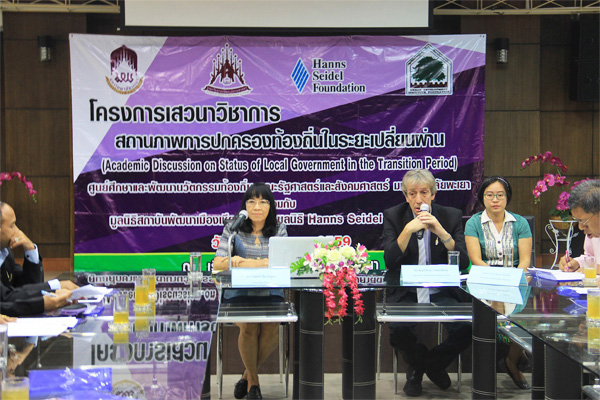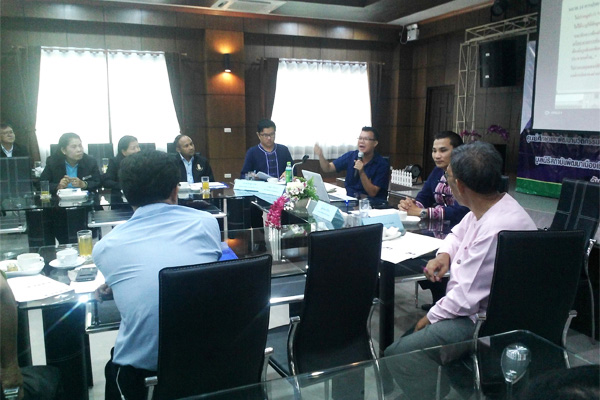Local Tourism in Chiang Mai Province
Development Project and Advocating the Capacity of Local Tourism in Mae Tuen Subdistrict, Omkoi District

Mr. Karl-Peter Schönfisch delivered the welcome speech.
HSF
During 15-18 February 2016, Faculty of Political Science and Public Administration, Chiang Mai University, and the Hanns Seidel Foundation, Thailand, conducted a training workshop on Development Project and Advocating the Capacity of Local Tourism in Mae Tuen Subdistrict, Omkoi District, Chiang Mai Province. The 40 participants were comprised of Chief Executive of the Subdistrict Administration Organisation (SAO), academics, members and officers of the SAO and villagers. The district is widely known and infamous for its opium cultivation.
The purposes for this workshop are as follows: To advocate knowledge and increase capacities for officers of the SAO as well as Mae Tuen villagers on the development direction for Mae Tuen SAO by applying the principle on community-based tourism as an alternative in order to replace or substitute opium cultivation for income generation. The participants will gain perspective and benefit from the study visit at different places, for example, at Mae Klang Luang Village and Ban Pong village. Above all, they will realize options on how to earn their income without opium cultivation.

Dr. Nattakorn Vititanon, School of Law, Mae Fah Luang University explained about the status of local government in the two decades.
HSF
Visiting the learning centers and other villages on how they do their own business in tourism sector is the key cornerstone to support them, not only in terms of intangible benefits to themselves by changing way of thinking to diminish opium cultivation, but they also provide them the opportunities to have substitute careers instead of opium cultivation. The participants showed their interest to learn new strategies in building of community-based tourism and exchanged their points of view. This workshop will advocate them to improve their standard of living and health without depending on opium. The SAO will be strong at the end, if the community would be free of illegal business.
